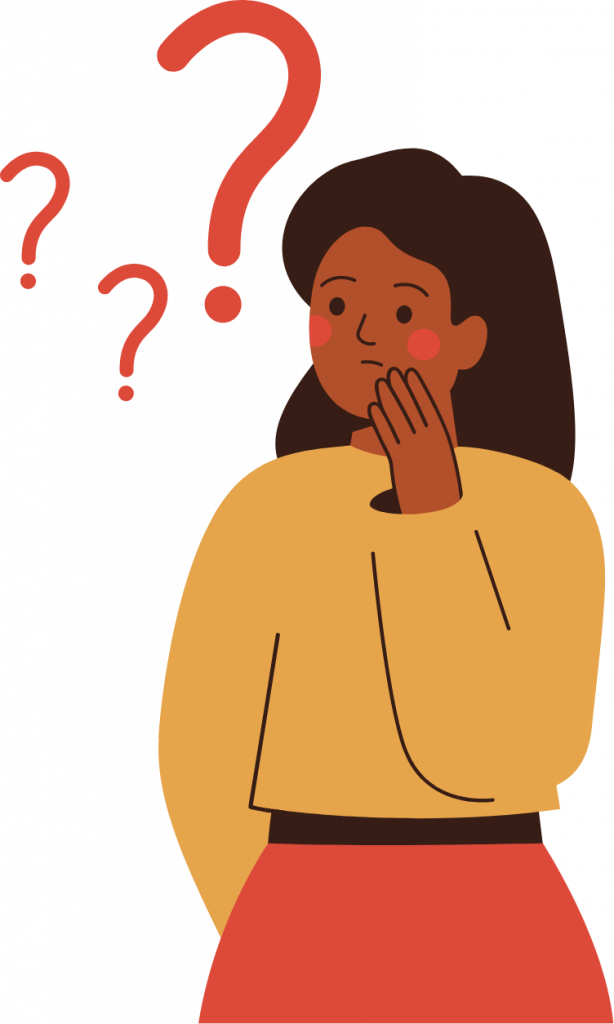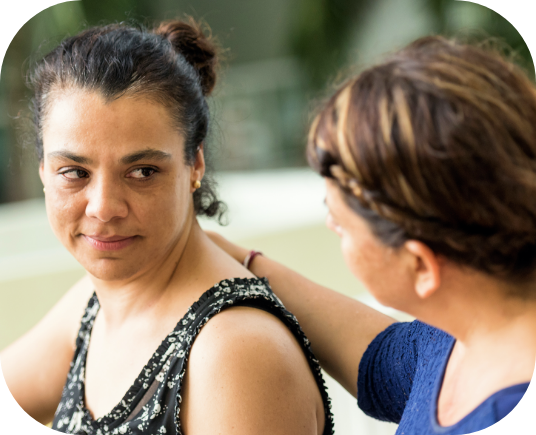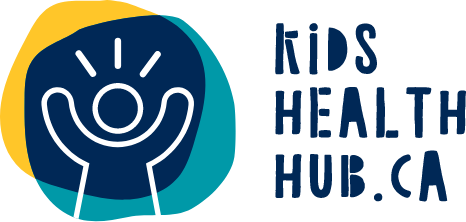

Sex Trafficking
What Is It?
Sex trafficking is when someone uses force, coercion, or fraud to force someone into prostitution, pornography, or sexual performance for money, drugs, food, shelter, or clothing.
If the person is a minor, it is trafficking no matter how they became involved.
Once a person is targeted, sex traffickers use violence, lies, false promises, debt, manipulation, or threats to make the person feel trapped. The person being trafficked might be coerced into sex acts by someone they thought of as an intimate partner.
Sex trafficking is very harmful. It can result in significant trauma (physical, psychological, and emotional).
Terminology
In the world of sex trafficking, there are different slang terms.
Automatic: the routine a victim has when they are not in contact with their pimp (due to their pimp being out of town, in jail, etc.). The victim is expected to comply because of the fear of punishment. Any money the victim receives is automatically given to the pimp.
Bottom: a person a pimp appoints to recruit possible victims, help keep others in line, and report on violations.
Branding: a way of marking (tattoo or carving) a pimp’s ownership of a victim.
Caught a Case: victim or a pimp is charged or put in jail
Chose Up: joining a trafficker’s stable (victims under the pimp’s control).
Daddy: what a male pimp/trafficker makes his victims call him
Date: an event of prostitution. The victim is said to be dating.
Exit Fee: The amount of money a pimp will demand from a victim who is thinking about leaving. It is typically a large amount of money to discourage them from leaving. Many pimps will not let their victims leave freely.
Family/Folks: the group of people under the control of the pimp.
Finesse/Romeo Pimp: a pimp who primarily controls his victims with psychological manipulation. There is a threat of violence. They may shower the victims with affection, gifts, and attention in the recruitment phase.
Gorilla (Guerilla) Pimp: a pimp who uses physical violence.
Grooming: a period when a pimp dates a person to win their trust before the pimp reveals they are a pimp/trafficker
John: a person who pays/trades for sexual acts
Knock: persuading a victim to go home with a trafficker/pimp. This is before the person is forced into prostitution.
Out of Pocket: when a victim is not working for a pimp but working in an area that is under the control of pimps. The victim is vulnerable to violence and threats from pimps to force them to ‘choose’ a pimp. This could also be when a victim is disobeying a pimp.
Pimp Circle: when pimps circle a victim and threaten/intimidate them to force them to pick a pimp.
Seasoning: breaking down the victim’s resistance to ensure compliance. There are many tactics, such as starving, beating, isolation, etc.
Turn Out: to be forced into sex work
What Are the Signs?
Signs of grooming:
- Changing how they dress
- Staying out late or all night
- Hanging out with new friends who are much older
- Withdrawing from or ignoring family and friends
- Using drugs/alcohol
- Not going to school
- Not showering/changing clothes
- Not eating
- Ignoring guidelines or rules at home or school
- Having clothes, jewelry, money, or expensive gadgets from an unknown source
- Lying
- Talking about being “discovered” for modelling or another job and having to go to another city
- Receiving gifts from a new friend or boyfriend
Signs someone is being trafficked:
- Changes on social media (like sexualized content)
- Hanging out with new people
- Having issues at school
- Appearing to be under someone’s control
- Have been “branded”- a tattoo or carving to indicate ownership
- Malnourishment
- Does not speak for themselves
- Have signs of physical abuse
- Seems scared or intimidated
- Drug or alcohol addiction
- Memory loss or inconsistent stories
- Fake ID saying they are older than they are
- Dresses provocatively or changes their sense of style/grooming
- Has money or expensive things from an unknown source
- Acting in a way that is not typical for their age (more mature, quiet, solemn, etc)
- Having a new boy/girlfriend who seemed to come out of nowhere, yet you have never met, and they won’t introduce you to this new person
- Having another cell phone with a secret number
- Being picked up by different cars
- Avoiding eye contact
How Does It Happen?
- Lives in an unsure environment
- Has trauma in their past
- Has experienced online luring/grooming
- Has unmet needs or insecurities
- Shows a lack of knowledge about healthy relationships and/or sex trafficking
- Enlistment: traffickers approach potential victims, typically with false promises of money, new things, work, or a relationship. They often pretend to be a potential friend/boyfriend
- Recruitment depends on the type of pimp a person is:
- Romeo/Finesse pimp will manipulate the person with love and affection (romantic relationship) or offer a more exciting/glamourous lifestyle
- Gorilla pimp will use violence and sexual assault to control/break the victim
- Isolation/Transportation: victims might be isolated from family and friends. They could even be moved around so their loved ones cannot contact them.
- Exploitation: pimps forces/coerces the victim to work for them and perform sex acts.

What To Do if It Is Happening to You?
If some of these signs sound like what you are experiencing, please remember it is not your fault and there is help.
Getting help can be scary, but it is important. You deserve to be happy, healthy, and safe.
How Can You Get Help?
Tell someone. This could be a loved one, a hotline/organization, the RCMP, or someone you trust/feel comfortable with. Telling someone can be scary and takes courage, but it is important. You have great inner strength which has helped you survive. Please remember, if you tell someone and they do not believe you or validate your experience, it does not reflect on you. Their reaction is about them. Tell someone else. You deserve to be heard.
Sometimes, talking to someone you know might be challenging. There are organizations and agencies which are there to help.
Canadian Human Trafficking Hotline
Hotline: 1-833-900-1010
This is available 24/7/365 and in over 200 languages and accessible for people who are deaf, hard-of-hearing, and non-verbal.
Email: hotline@ccteht.ca
All communication is confidential.
Chrysalis Anti-Human Trafficking Network
Hotline: 1-866-528-7109
Free and confidential counselling for anyone who has been or is being trafficked. This Edmonton based organization provides referrals, counselling, and support.

What to Do if Someone Discloses They Are Being Trafficked?
General tips:
- Give the person space to talk
- Be calm, relaxed, nonjudgmental, and approachable
- Use empathy. Be attentive and listen.
- Practice open communication
- Remember, it is not the person’s fault and they have been conditioned and manipulated by their trafficker. They might not trust law enforcement or helping organizations.
- The person might identify as a victim because of a lack of knowledge about trafficking and the manipulation
- They might change their story as they tell it to other people or become more comfortable talking to you.
Remember VEER
Validate, Encourage, Empower, Refer. (This is not counselling the person. It is connecting them with help).
Validating is so important. It is letting the person know what they are feeling is okay. It is acknowledging their emotions as understandable.
For example:
- I am so sorry this is happening to you. You have every right to be upset.
- I believe you.
- This is not your fault.
- What they did to you is not okay.
- You didn’t deserve this.
This is letting the person know they did a good thing by telling you. Talking about mental health struggles can be very challenging. Let them know they are doing the right thing by telling you.
For example:
- Thank you for telling me. That would have taken a lot of courage. It shows how strong you are.
- You did the right thing by telling me.
- I am here for you.
Struggling with mental health issues can be overwhelming, so it is important to let the person know there is help and they can feel better.
For example:
- I know things seem really overwhelming, but there are resources and people to help.
- Let’s find some things which can help you feel better.
- You deserve to feel happy! We will find a way to get there.
Connect the person with help. They deserve to feel happy and healthy again. There are resources to help them. Your loved one needs to get help. This is not something you can deal with without professional help. Help the person think of someone they trust/who they would like to talk to about their challenges. Everyone connects with different types of help. Give your loved one options, like a doctor, individual counselling, group counselling, spiritual leader, or an elder. You can also offer them some helplines they can call when they are struggling, too.
For example:
- Here are some phone numbers you can call when you feel like you need someone to talk to.
- Let’s look up some resources and see what you like best.
- There are many options of people you can talk to. We could talk to the doctor, find a counsellor, or elder. What would you be most comfortable with?

Do not ignore the situation. The person needs help.
If the person does not feel comfortable talking to authorities about their situation, you can report here. You have the duty to report if someone is being trafficked.
Get help for you too. This is an extremely difficult situation. Practice self-care to help you cope with it.
How to Talk to Someone if You Notice the Signs?
Teens
- Trust your instincts and acknowledge the signs
- Trust your gut feeling. You have it for a reason.
- Report it to the Canadian Human Trafficking Hotline, the Chrysalis Anti-Human Trafficking Network, or law enforcement
It might feel like this is something you can confront without outside help, but it is important you do not. This is putting you at great risk. If you go to help your friend, there is a risk the person trafficking your friend will traffic you, too. Reach out for help rather going to help your friend.
Canadian Human Trafficking Hotline
Hotline: 1-833-900-1010
This is available 24/7/365 and in over 200 languages.
Email: hotline@ccteht.ca
Or online at Submit a Tip – Canadian Human Trafficking Hotline
All communication is confidential.
Chrysalis Anti-Human Trafficking Network
Hotline: 1-866-528-7109
Immediate danger call 911
Resources and Follow-up Support
Submit a Tip – Canadian Human Trafficking Hotline
Chrysalis Anti-Human Trafficking Network – HOME (chrysalisnetwork.org)
Canadian Human Trafficking Hotline
How to report human trafficking | Royal Canadian Mounted Police (rcmp-grc.gc.ca)
Common Sex Trafficking Language (sharedhope.org)
How It Happens – The Canadian Centre To End Human Trafficking
How to report human trafficking | Royal Canadian Mounted Police (rcmp-grc.gc.ca)
Human Trafficking – Warning Signs of Human Trafficking (nv.gov)
Human trafficking | Ontario.ca
HumanTraffickingLingoPDFrbi.pdf (squarespace.com)
Is My Friend Being Sex Trafficked? – BridgeNorth
Microsoft Word – Comprehensive Trafficking Assessment (reddeercityvsu.ca)
mod3_info_sheet2.indd (reddeercityvsu.ca)
Need Help? – The Canadian Centre To End Human Trafficking
Recognizing human trafficking victims | Royal Canadian Mounted Police (rcmp-grc.gc.ca)
Recognizing the Signs | National Human Trafficking Hotline
Sex Trafficking | National Human Trafficking Hotline
Signs of Human Trafficking – The Canadian Centre To End Human Trafficking
Signs that a Person Might be Trafficked – Province of British Columbia (gov.bc.ca)
Submit a Tip – Canadian Human Trafficking Hotline
Warning signs – Covenant House Toronto
What is Sex Trafficking? – Shared Hope International
What makes someone vulnerable to sex trafficking? – Covenant House Toronto
If you would like to speak to someone about mental health issues, the Alberta Health Services Mental Health Help Line is available 24/7, offering information and referrals on any aspect of mental health.
Call toll-free: 1-877-303-2642
Trending Topics
Depression
Depression What Is It? Depression is a mood disorder which means it impacts how a person is feeling. It can cause a person to feel
Accidental Overdose
Accidental Overdose What Is it? An overdose is what happens to someone’s body when they take too much of a substance or too many substances.
Online Relationships
Online Relationships Online can be fun! There are games, music, and videos. We can talk to friends and family online. Tips for Being Safe Online:
Online Relationships
Online Relationships Online can be fun! There are games, music, and videos. We can talk to friends and family online. Tips for Being Safe Online:

